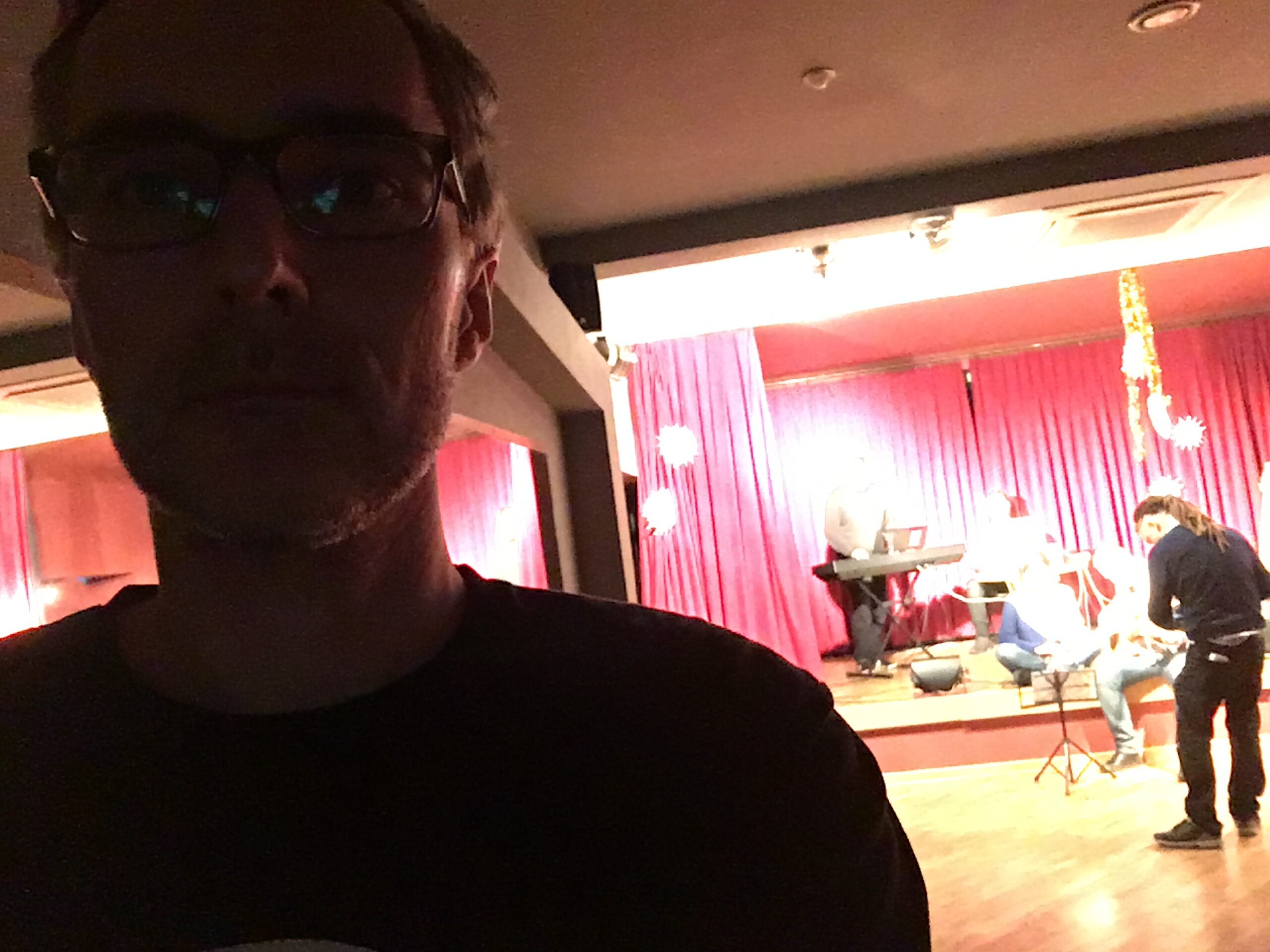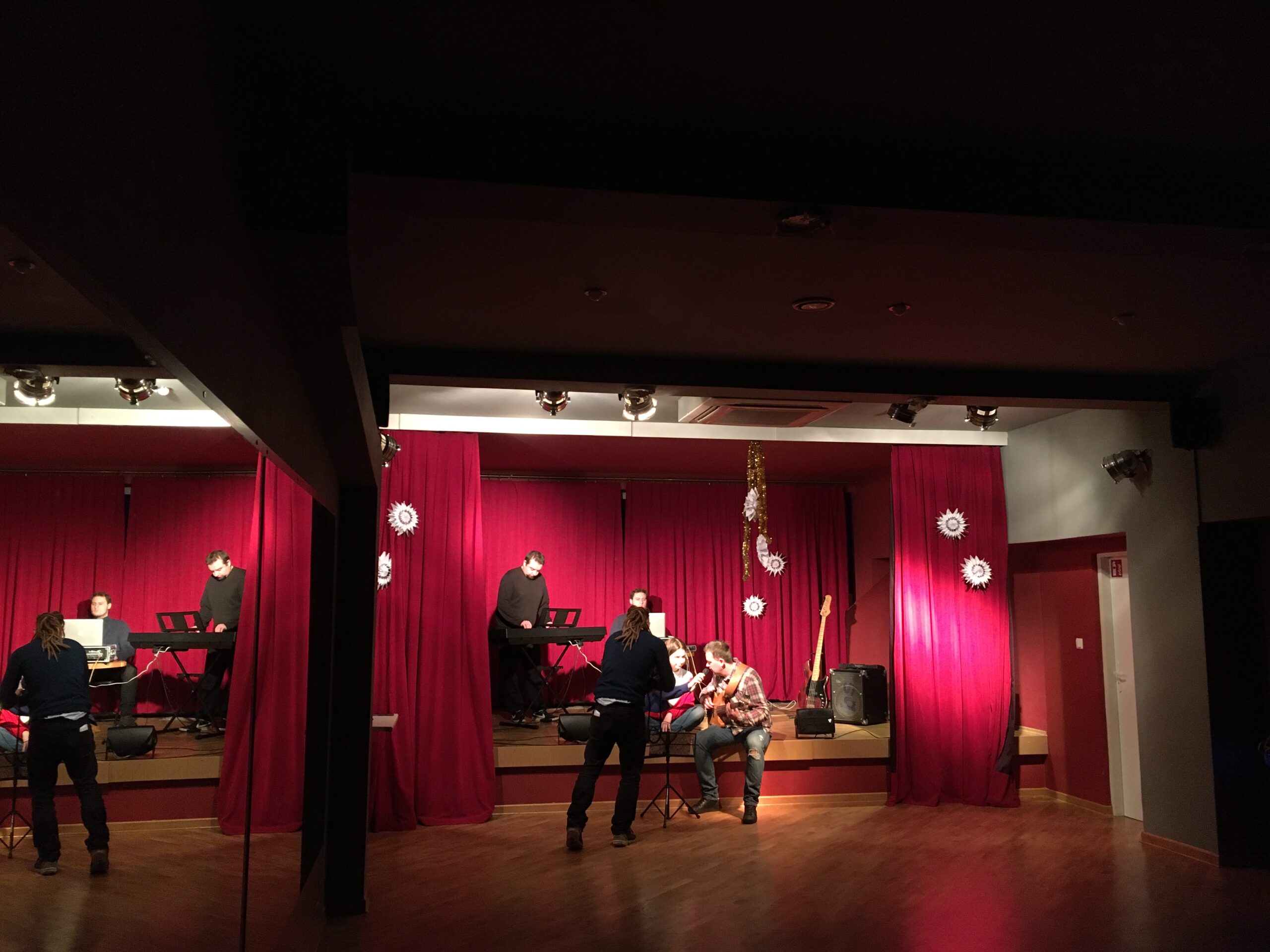2020 was a year like no other. The end of 2019 and the start of 2020 were marked by devastating fires which raged across Australia for months and led to enormous loss of life. And as soon as the fires had been extinguished, Covid-19 pandemic has emerged as a new threat to deal with.
In Australia, like in most other countries, Covid has led to pretty severe lockdowns, and this was also the case in Melbourne where I live. Lockdowns prevented musicians from being able to perform live or even collaborate face to face in the studio. As a result, myself as well as many other music makers spent an increased amount of time on solitary music production activities. But the collaborative spirit often prevailed and gigs as well as recording sessions were moved to the virtual world.
Online collaborations constituted a large part of my activities as well. Given that my PhD research investigated the impact of remote music collaboration on music production a few years before the pandemic, it was fascinating to see the changes in the attitudes to such activities during lockdowns…
Throughout last year I was fortunate enough to be able to work on several musical projects covering activities such as networked live performance, composition, studio and field recording, mixing and also music production research. These projects were often quite collaborative.
What follows below is a recount of some of my activities that came to fruition in 2020. In the final paragraph there is also a bit of a heads up on what’s to come in 2021.
January
Before Covid-19 was a thing, in early January I spent a few days in Budapest attending the Musica Femina International Symposium & the Transparent Sound New Music Festival. At the symposium I presented a paper titled Female Agency and Perspectives in the Communities of Mobile Musicians, which was a part of the Gender and the Music Industries panel.
Also in January I worked in Poland with musicians Daniel Swiader and Ela Kalinowska, who have recorded a new interpretation of the song Boulders. It was composed by my music production student Vince Bird and Daniel and Ela arranged and recorded a new, jazzy version of this emotive, and initially, electronic-pop track. I participated in the video shoot documenting the performance of this new version and interviewed Daniel and Ela about their work on this material. You can see a few stills from the video shoot below. A longer video with a few more interviews is scheduled for a release in 2021.
Around that time, I was invited to do an interview on Polish TV and talk about my research on remote music collaboration as well as the above projects. The interview in Polish can be found in my earlier post on this blog.
To wrap up January, I participated remotely in the Mobile Storytelling Congress at the University of Nottingham in China where I presented a paper on Machine assisted composition and portability in mobile music making. I also contributed a soundtrack to the congress video trailer and the MINA film festival trailer.
February
The US label Apptronica released a unique compilation album Then & Now which showcases a decade of developments in mobile music making or, more specifically, music created with iOS apps. I have two KOshowKO tracks featured on this album: Now You‘re Talking Baby (made completely with the use of just one app called Yellofier around 2012) and a new, previously unreleased tune titled Rich Machine (Birthday Train Ride One Take Mix). As the title suggests, this second track was made during a few short train rides that took place on my birthday. You can hear me talking about the making of Rich Machine and see some footage from this process in the YouTube video here.
The album can be downloaded from Bandcamp with the name your price option at the link below.
April
By April, lockdowns were already in full swing around the world, including in Melbourne. I came across an intriguing sound design project: The Sound Outside – Listening to the world at Covid-19 Time, for which I recorded sounds from my backyard, documenting my own social isolation. You can hear the charm of the early April cicadas (plus some quieter bats as well as cats and dogs from my neighbourhood) below.
May
In May I worked with a group of Clan Analogue artists on an ambitious live networked music Lockdown Drone performance utilising Jamulus and Jitsi software. Unlike many isolation jams published online, ours was done completely live and included multiple participants. The result was a 5.5 hour multicast jam session involving musicians from Melbourne, Sydney and Canada and streamed live on Twitch. This gig was a perfect opportunity to perform as iubar project, where I explore ambient and drone music by default.
August
August saw the release of my new collaborative single titled Kosciuszko Jedi, published under the Polish name of one of my side projects – Rycerze Dzieciom (which in English means Knights for Children).
Kosciuszko Jedi is one of the most unusual music releases that I have ever been involved in and it’s about a person who died over 200 years ago. If you live in Australia, you know his name because it’s the official name of the highest mountain here. If you live in Poland, you probably have learned some clichés about Kosciuszko at school. But perhaps you haven’t heard that he also fought for the rights of peasants and various national and racial minorities around the world and that he actively opposed slavery in the US and was also very critical of the highly affluent and influential catholic clergy. So this single portrays Kosciuszko as a ‘friend of humanity’ and a true champion of freedom and equality for all.
The single features 3 tracks on Bandcamp and 2 tracks on other streaming services. Bandcamp release also includes a collection of beautifully shot, black & white photos from the album cover photo session that took place in May 2020 in Witulin, Poland.
October
iubar project’s track titled Earth 2 was released in October on the Ambient Online Compilation 11: Mars. The track is a result of remote music collaboration and its title refers to the sci-fi idea of traveling to Mars and creating conditions for a new human colony there. So it’s about Mars becoming the next planet for human inhabitants – Earth 2…
November
November brought another ambient contribution from iubar project. A track titled Empathy in Action which was released on a new Clan Analogue album Distance: Sounds for an Empty Space. The album was launched during the Digital Fringe Festival and the lunch event took the form of another epic live networked performance that was streamed live on Twitch. A short video excerpt from this performance can be seen here on Twitch. And the track can be heard below…
You can also hear me introducing and briefly discussing Empathy In Action alongside other album artists doing the same in this replay of the Planet X radio show which was broadcast on the 3CR radio station in December. I talk about iubar’s track around the 7.45 minute mark in the player below. You can also hear excerpts of multiple tracks from the album there.
And other, yet to be released projects…
Apart from the projects listed above, in 2020 I worked on some new Philosophy of Sound and KOshowKO tracks that I hope will see the light of day in 2021. When it comes to the new Philosophy of Sound material, I started collaborating with Sebastian Barahona, a great multi instrumentalist from Melbourne and I can’t wait to show some of these tracks to the world.
Research wise, I wrote a book chapter titled Performative Storytelling: The Model of Setting-Based Mobile Music Creation which is set to be published in a book titled Story Living in an Age of Smartphones by Springer Publishing in 2021.
In summary, it was quite a productive year, although to be honest, I didn’t feel the same level of motivation to work on music during lockdowns as in more ‘normal’ times. Given how unusual this last year has been, I couldn’t be more happy that so many projects came to fruition anyway. Let’s see what the new year will hold in store for us all!
Comments
Powered by Facebook Comments








